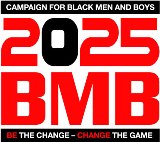Skid Row, Los Angeles–
In April 2013 LA CAN released a report entitled, The Dirty Divide, which clearly detailed the inadequate public health infrastructure that exists in DTLA. Utilizing a participatory action research framework residents mapped the day-to-day experiences faced by residents simply attempting to relieve themselves. Moreover, the report included a set of recommendations that we are using as a roadmap for the work needed to end the public health inequities. National and local researchers pointed to the report, and its participatory methodology, as a model way of problem solving which includes a variety of stake-holders and duty-bearers.
On June 5, 2013 the Department of Public Health released its follow-up report on the current conditions of Skid Row. Current Status of Conditions on Skid Row Report.6.5.13 The report found alarming increases in conditions previously abated by the City of Los Angeles in their May 2012 inspection. Among their findings were an 88% increase in solid waste disposal violations; a 100% increase in vermin violations; a 62% increase in safety violations; and, that the presence of urine and feces increased by 82%. Many of the report findings mirrored the conclusions drawn in the Dirty Divide, and while not news to residents facing the problems daily, it validated the need to respond rapidly.
But why had the City of Los Angeles’ Operation Healthy Streets fallen so drastically?
As reported by LA CAN, on numerous occasions, the impetus behind Operation Healthy Streets was less about the health of Skid Row residents and more about the Lavan Injunction which stopped the outright illegal confiscation and destruction of personal property. Residents have long cleaned the area and pushed for basic trash pick-up to no avail but it was not until the City of Los Angeles found itself in dire legal straits that their game of “smoke and mirrors” would begin. Noticeably, after their legal maneuvers failed to produce desired outcomes and the Supreme Court refusal to even hear their case, it quickly went back to business as usual.
On July 29, 2013 Gail Holland, LA Times wrote an article entitled, “Skid row bathrooms are a perennial debate,” which attempts, in a lackluster fashion, to posit that solutions to the bathroom crisis are stunted because advocacy groups and various Mayor’s all have had different answers. In fact, LA CAN, the County Department of Public Health, many other service and advocacy groups, and now – according to the article – even LAPD agree that until the long-term solution of housing for all is achieved, more 24-7 restroom access is crucial and can be provided through automated toilets and/or in service sites. Nowhere did Gail mention the fact that LAPD has for years lobbied hard against additional bathrooms; had bathrooms locked at night; or, that some public urination cases were handled as sex crimes leading to registration on the sex offender list and all the problems associated with that determination. I would have to say that Gail missed alot in her skid row bathroom investigation, particularly that there is widespread need and support for solving public health inequities in Skid Row but not the political support to do so – likely because of the business community’s opposition she mentions, but does not contextualize.
The only thing “perennial” about this issue is the everlasting attitude that dehumanizes poor and homeless people, and Black people in particular.


